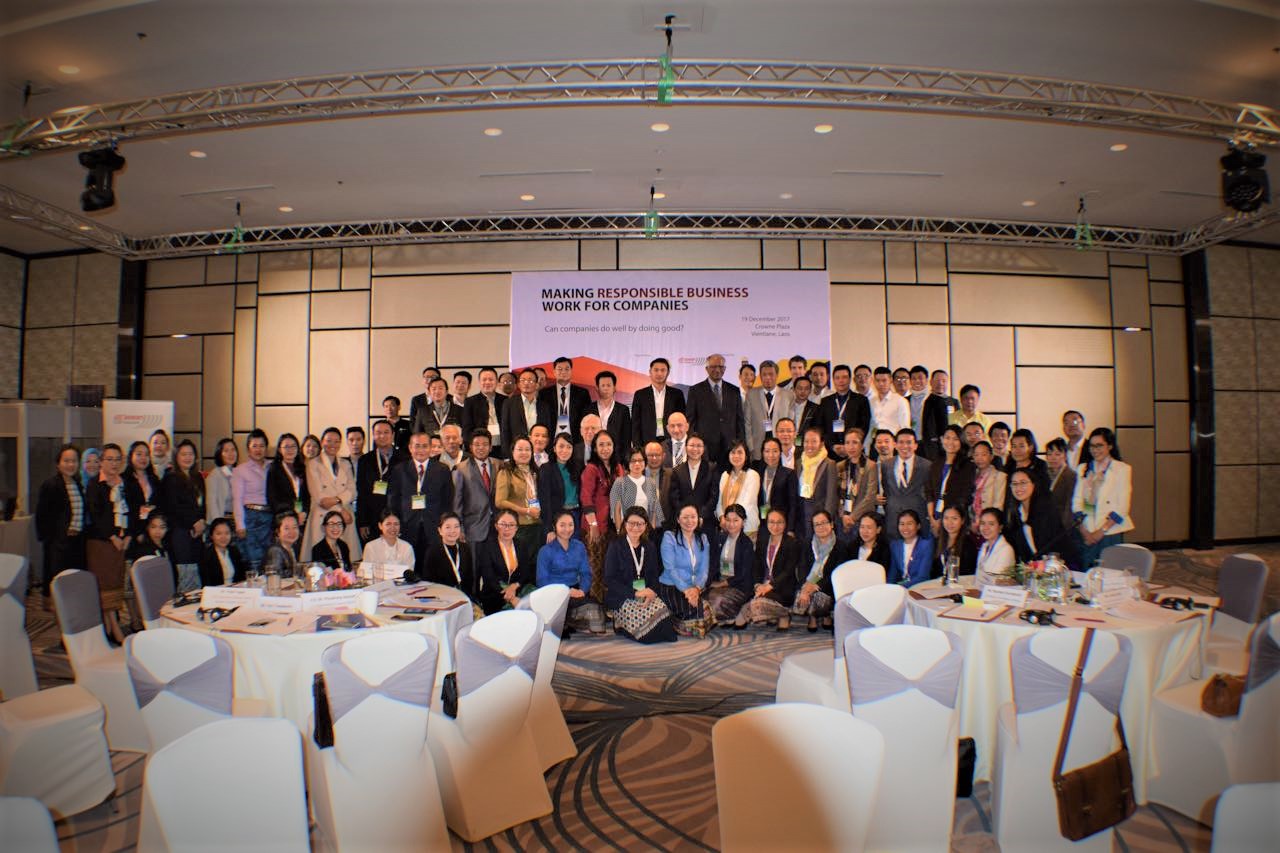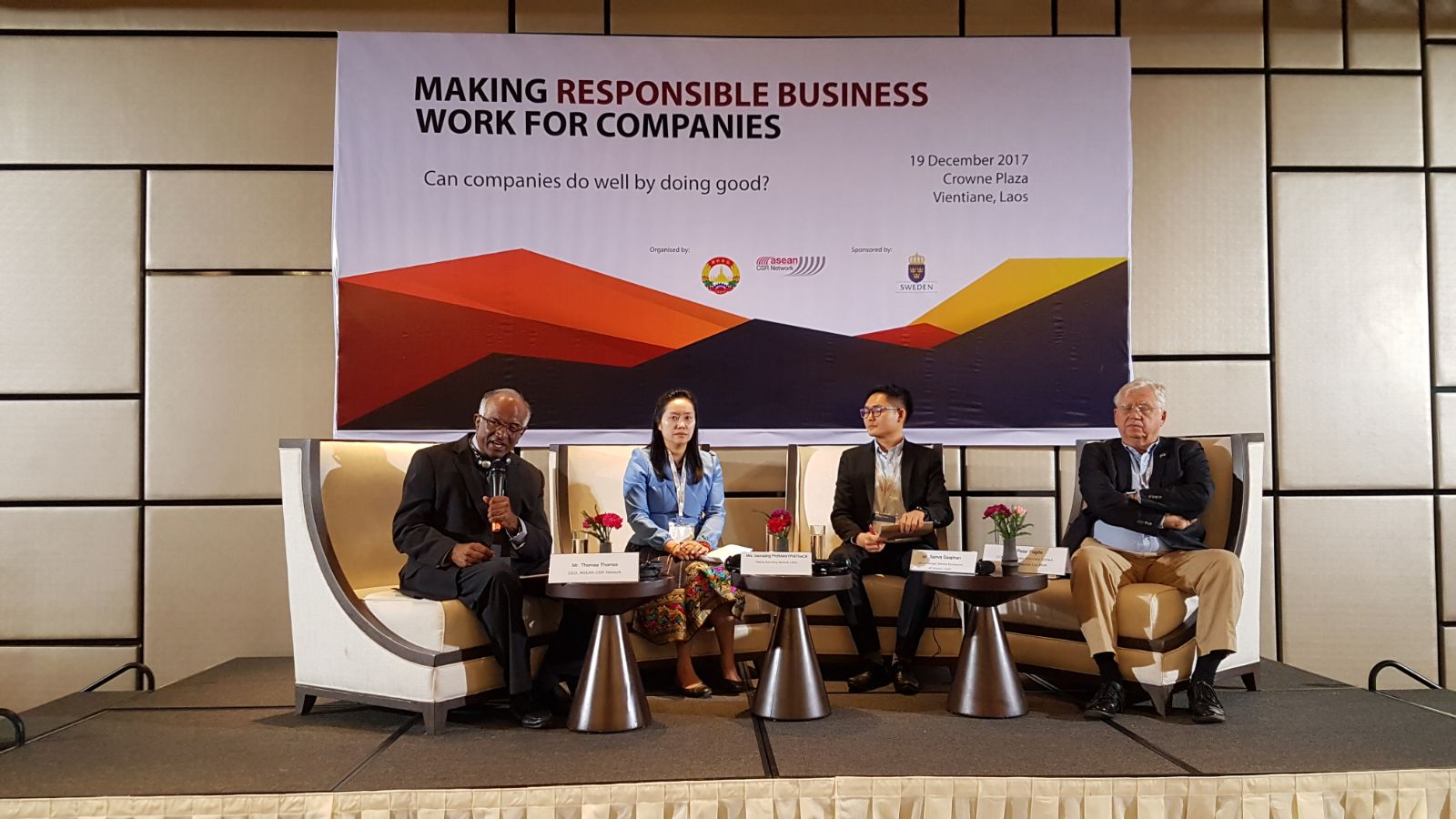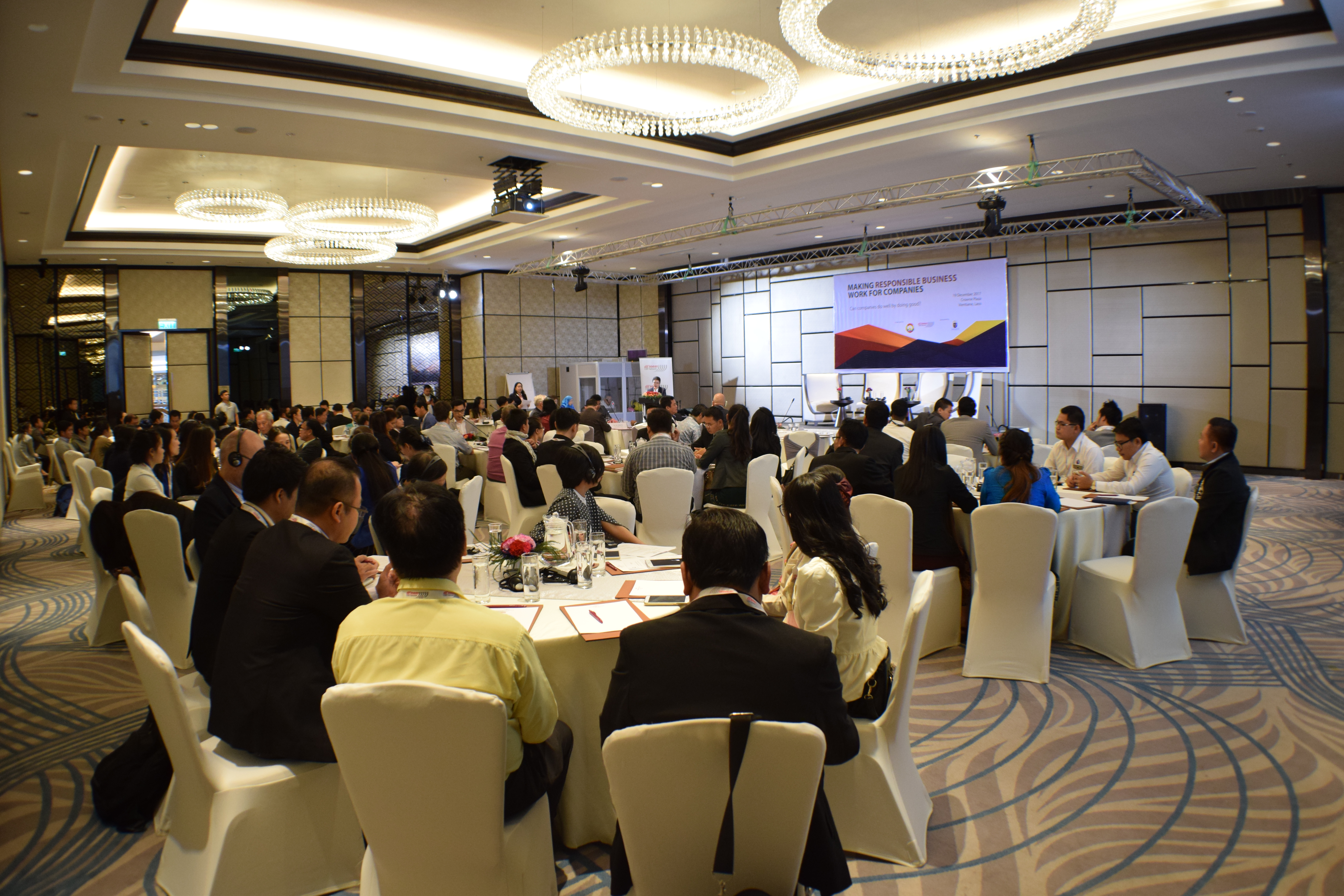Lao Businesses Attend Conference on Responsible Business
This included deep dives into pertinent issues in Laos, such as human trafficking and land conflicts. Other sessions covered topics such as the business case for responsible business and the UN Guiding Principles on Business & Human Rights (UNGPs) as a tool to help businesses.

This is the second workshop co-organised by the two organisations, with the first held in 2015.
Prominent opinion-shapers in Laos opened the sessions, including Ms Valy Vesaphong, Vice-President of LNCCI, and H.E. Mr. Phoukhong Sisoulath, the Representative of Laos to ASEAN Intergovernmental Commission of Human Rights (AICHR). ACN's Chair, Ms Yanti Triwadiantini, delivered the opening remarks, while ACN's CEO, Mr. Thomas Thomas, acted as moderator for the first session.

In addition, participants heard from local companies leading the responsible business agenda, including KP Company, Lao Brewery Company, Sinouk Coffee Company, LanXang Minerals and Burapha Agro-Forestry. The Ministry of Natural Resource and Environment and the Ministry of Security and Immigration, also shared insights on land rights and human trafficking respectively.
Also present in the room were government officials, representatives from foreign chambers of commerce, international organisations and local press.
Responsible business remains a relatively new concept among the business community in Laos. Though the country has enjoyed sustained steady GDP growth – mainly as a result of the increased foreign investment flows in industry and agriculture – human rights and environmental challenges have also arisen from irresponsible business operations. As with the rest of ASEAN, deep-seated challenges continue to persist including land-grabbing, forced labour practices, poor working conditions, corruption, rising inequality, the depletion of natural resources and climate change. Much of this impact was caused by the unbridled pursuit of profits by companies at the expense of communities and the environment.


